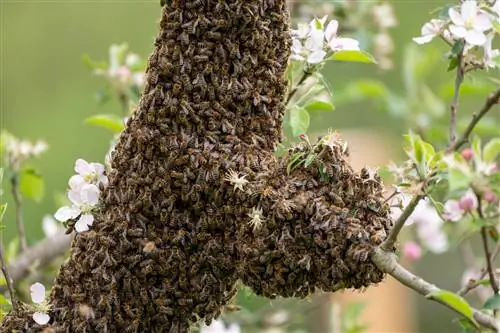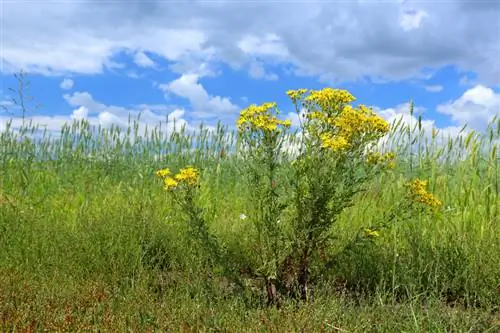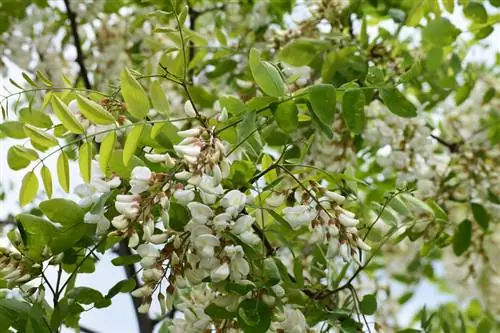- Author admin leonars@hobbygardeners.com.
- Public 2023-12-16 16:46.
- Last modified 2025-01-23 11:20.
For years, ragwort was safely sown in seed to green roadsides, railway tracks and fallow land. Due to the warmer climate in recent years and areas without closed turf, the herb, which is poisonous to people and animals, has become increasingly widespread in recent years.

Is there an obligation to report ragwort in Germany?
In Germany there is currently no obligation to report the poisonous ragwort. The situation is different in countries such as Ireland, Austria and Switzerland, where the plant has to be reported and landowners are required to combat it.
Toxicity of Ragwort
The ragwort contains highly toxic pyrrolizidine alkaloids that accumulate in the liver. If the animals eat the plant regularly, these substances gradually lead to a painful death. There are currently no treatment options. The toxins also enter the food chain via milk and honey. Experts blame the spread of ragwort for the increasing number of liver diseases in humans.
No obligation to report
The plant is already subject to reporting in Ireland, Austria and Switzerland. In Germany, however, there is currently no obligation to report, even if this is expressly requested by many animal owners. Because of the toxicity to humans and animals as well as the increasing spread of ragwort, every landowner in these countries is encouraged to actively combat ragwort.
The Federal Ministry of Food, Agriculture and Consumer Protection is concerned about the increasing spread. At the same time, the federal government points out that ragwort is a native plant that cannot be controlled in some areas.
No more ragwort in the seeds
Since 2009, German seed manufacturers have only been offering ragwort-free mixtures. Up to this point, the mixtures contained up to 4 percent ragwort seeds. This is very welcome in order to contain stocks.
Recommended control measures
To prevent further spread, the following measures are recommended:
- Prevent ragwort seed formation through timely mowing.
- Cut out individual plants. No root residues may remain in the soil from which a new plant would form.
- Avoid excessive grazing.
- Maintain dense turf by reseeding.
- In case of severe infestation, combat chemically as soon as the rosette has reached a height of 15 centimeters.
Tip
For your own safety, wear gloves when doing all work (€13.00 on Amazon). The active ingredients of ragwort can also be absorbed through the skin in small quantities. Since they accumulate in the liver, there is a risk of gradual poisoning.






